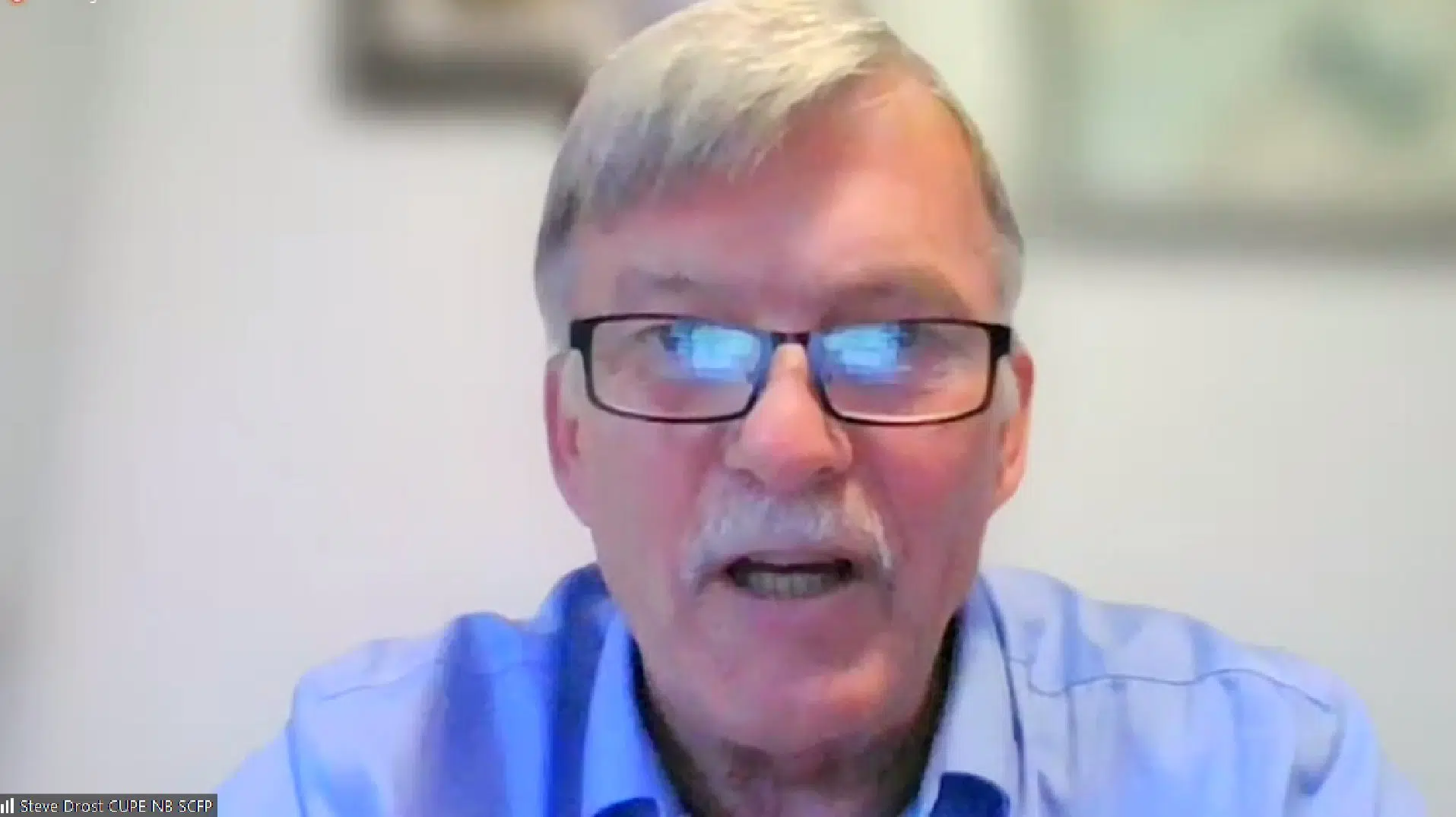
Stephen Drost, the president of CUPE New Brunswick, speaks during a virtual news conference on Sept. 29, 2021. (Image: Zoom video capture)
Thousands of New Brunswick healthcare workers are the latest to vote in favour of strike action.
Members of CUPE Local 1252, representing more than 11,000 workers, voted 94 per cent in favour of a strike.
They join members of seven other CUPE locals without contracts who have also given strike mandates.
Stephen Drost, president of CUPE New Brunswick, said the workers are prepared to do “whatever it takes” to get a fair deal.
“Some of them haven’t had contracts for four years now and all of them haven’t had fair wage increases for 15-plus years,” Drost said during a virtual news conference Wednesday.
“Enough is enough. The members are speaking very loud and clearly.”
The province’s most recent offer included a nine per cent wage increase over six years, while the union is seeking 20 per cent over four years.
Premier Blaine Higgs has said the province must remain “prudent, responsible and realistic” about the wage package they offer, noting there is still uncertainty with COVID-19 and the economic challenges it could bring.
Two other locals will have their votes done and counted by no later than next Tuesday, according to CUPE.
Once that happens, Drost said the centralized bargaining team and locals would meet to discuss the next steps, noting there are “multiple different” routes they could take.
“It typically starts out with work-to-rule and then we’ll be looking at where are the weakness and vulnerabilities throughout the province, so there could be different parts of the province that job action is taken,” said Drost, adding he sees any job action starting “immediately.”
Drost said the union is prepared to go back to the bargaining table at any time, as long as the government removes concessions it wanted CUPE to agree to.
“I don’t want to get into the nuts and bolts of that, but that’s not bargaining,” Drost said when asked to elaborate on the concessions, noting they are specific to each respective local.
According to the union, the premier agreed to centralized bargaining talks on wages only, with the understanding that other items would be addressed with each individual local.
“That was not the place to bring in new elements other than general economic increases,” said Simon Ouellette, a CUPE communications representative.
More than 22,000 public-sector workers are represented by the 10 CUPE locals. They work in a wide range of sectors including healthcare, education, social development, justice and corrections, and transportation and tourism.







